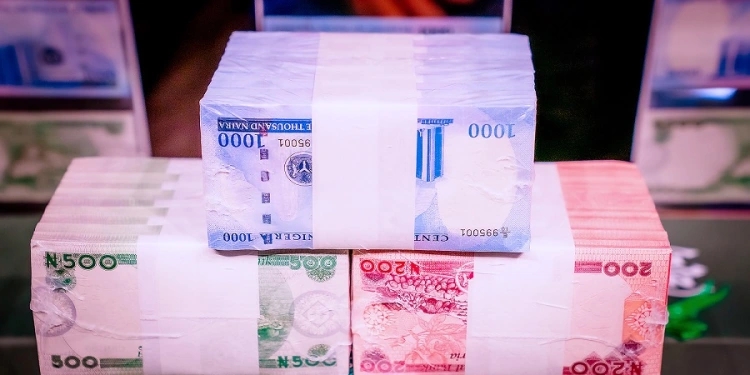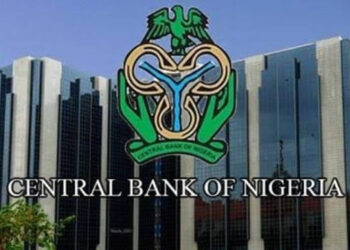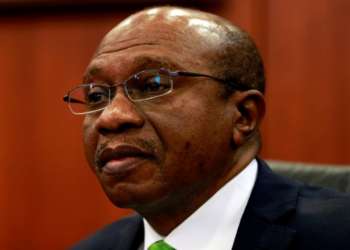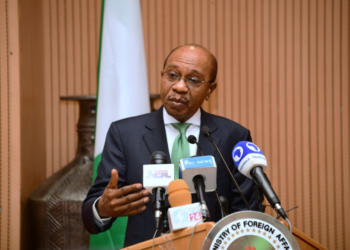Key highlights
- The Central Bank of Nigeria (CBN) announced plans to redesign the N200, N500, and N1000 Naira notes due to hoarding, counterfeiting, and the need for regular redesign.
- The new Naira notes were unveiled on November 23, 2022, and the old notes were scheduled to cease being legal tender on January 31, 2023, which was later extended to February 10, 2022, causing difficulties for Nigerians.
- The Naira redesign failed to achieve some of its objectives, such as curbing inflation, and the CBN governor’s involvement in politics raised questions about the politicization of the CBN.
In October 2022, the CBN announced plans to redesign three out of the eight currency denominations in the country. The apex bank stated it will redesign the N200, N500, and N1000 Naira notes. Some of the reasons made for the redesign by the CBN include hoarding of the Naira which has led to a shortage of cash in circulation, an increase in the rate of counterfeiting notes, and that according to best practice, Naira redesign should be undertaken every 5 to 8 years. The CBN announced it had the support of the government to carry out the proposed plan.
On 23 November 2022, President Muhammadu Buhari unveiled the new naira notes. The unveiling raised eyebrows and concerns, especially across social media platforms. Many alluded that the redesign was only “adding colour” to the old notes. The CBN earlier announced that the old note will cease to be a legal tender on January 31, 2023, but later extended by 10 days to February 10, 2022, after calls from different quarters. However, the extension didn’t prove to be effective as many Nigerians were left scrambling for cash.
The CBN governor, Godwin Emefiele, also announced that it has created an alternative source for citizens to carry out their transactions to cushion the effect of the naira redesign policy. In the wake of the policy, banking halls were filled with individuals trying to either deposit their old notes or get new notes. The policy bo doubt created hardship as people do not have access to new notes, and the Point of Sale (POS) option was not feasible for customers as many charged as high as 50% of the amount to be withdrawn. Also, many Nigerians were left frustrated due to failed transactions with many having their funds trapped for weeks. With the validity of the old notes extended, there are lessons to be learned.
Inflation is on the rise, among other failed objectives of the Naira redesign
One of the reasons the CBN gave for the naira redesign was to curb inflation in the country. However, checks have revealed that Nigeria’s inflation has continued to be on the increase, and the redesign has failed to curb it. According to the NBS, in October 2022 when the CBN announced plans for the Naira redesign, the inflation rate was 21.09 per cent. However, Nigeria’s inflation rate has increased from 21.82 per cent in January 2023, to 21.9 per cent in February 2023.
Another reason the CBN gave was to stop terrorism financing. The country has been bedevilled with kidnapping for ransom, among other security issues. In an earlier report by Nextier (a public policy research organization), it noted that the Naira redesign to curb terrorism financing was more of a “quick fix”, and also the approach cannot effectively curb it. It also accused the Nigerian government of failing to act on an earlier report of individuals charged for links to terrorist organizations and they lack the political will. The CBN has so far failed to report on this, and there’s no proof it has done this.
The chairman of the Economic Financial and Crime Commission (EFCC) Abdulrasheed Bawa lauded the CBN that the move to redesign the Naira will help curb vote buying in the 2023 general elections. However, it should be noted that this doesn’t fall into the duty of the CBN and as such should not get itself involved in such.
The Politicization of the CBN
One of the objectives of the naira design policy by the President was to curb illicit election financing. However, when did that become the purview of a Central Bank? Andrew Bailey of the Bank of England and Jerome Powell of the Federal Reserve of America always try to avoid politics. Although, the CBN at different times announced the naira redesign policy was not targeted at any individual, candidate, or political party. However, the CBN governor’s involvement in politics should make one rethink. In the buildup to the 2023 general elections, and the jostle for the presidential ticket of the ruling party, APC, since President Buhari was ineligible having served two tenures, Mr Godwin Emefiele reportedly threw his hat in the ring. Although he denied contesting at different times, it was reported that their different groups bought the nomination form of the APC which cost N100m, and also branded vehicles with his name vying for the presidency surfaced online. According to reports, he also dragged INEC and the Attorney General of the Federation (AGF) to court for fear that he would not be allowed to contest based on section 84(12) of the Electoral Act 2022 which provides:
“No political appointee at any level should be a voting delegate or be voted for at the convention or congress of any political party for the nomination of a candidate for any election”
Has the Supreme Court set precedence by influencing monetary decisions?
In a lawsuit filed by the governments of Kaduna, Kogi, and Zamfara, they dragged the CBN to court over the Naira redesign policy and refusal to extend beyond the February 10 deadline; the states were later joined by 13 other states to make a total of 16 states. After initial adjournment, the Supreme Court on March 3, 2023, by a seven-man panel ruled that the N200, N500, and N1000 notes remain legal tender and the validity extended to December 31, 2023. The decision of the Supreme Court was seen as a relief across the country.
The Supreme Court ruled that No reasonable notice was given as required by section 20(3) of the CBN act 2007. Also, the court ruled that the president cannot unilaterally take a decision such as a Naira redesign without consulting stakeholders, which the states are a part of. However, it should be noted that the Supreme Court has created a precedence that should be carefully looked into. The CBN through its establishment has been vested with the power through sections 12 (1) and (3) of the CBN Act 2007 to be in charge of monetary decisions. The Supreme Court going as far as setting a December 31 deadline could take away the independence of the CBN.
What’s next?
After the decision by the Supreme Court, many Nigerians waited on the CBN to give an order regards the decision. With the CBN now fully complying with the Supreme Court orders, it’s not yet over. The CBN has to ensure that more notes are released to commercial banks for easy access by citizens and customers. Also, the CBN should work with the security and relevant agencies to ensure that the funds when given to the banks should be released to customers, and sanction any bank or official caught hoarding funds.
























